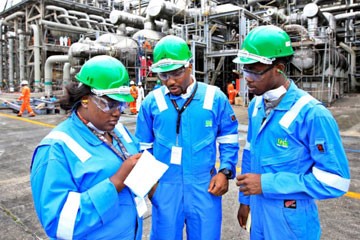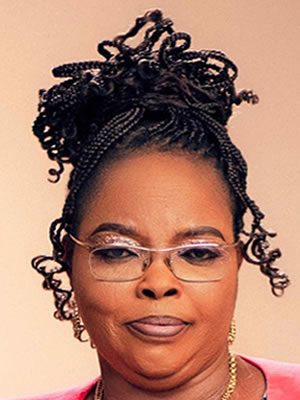Introduction
The Students’ Industrial Work Experience Scheme (SIWES) is an all-encompassing skills acquisition and training program that addresses the worrying gap between theory and practice exhibited by students of Universities, Polytechnics/Colleges of Technology/Colleges of Agriculture and Colleges of Education. The scheme is generally designed to expose students to and prepare them for the industrial work situations they are likely to meet after graduation. The scheme also affords students the opportunity of familiarizing and exposing themselves to the needed experience in handling equipment and machinery which are usually not available in their training Institutions. The programme carries a specific number of credit units depending on a Student’s study programme in the University curriculum.
At the Federal University of Agriculture, Abeokuta (FUNAAB), the SIWES Unit became a full-fledged Directorate in August 2001. The scheme is funded by the Federal Government of Nigeria; and jointly coordinated by the National Universities Commission (NUC) and Industrial Training Fund (ITF).
Before the establishment of the Scheme, there was growing concern among Nigerian Industrialists that graduates of Nigerian Institutions of Higher learning lacked adequate practical background training preparatory to employment in Industries. Thus, Industry Employers were of the opinion that the theoretical education offered in higher Institutions was not responsive to the needs of Employers of Labour.
It is against this background that the rationale for initiating and designing SIWES by the Industrial Training Fund (ITF) during its formative years (1973/74) was introduced; to acquaint Students with the needed skills required for handling Employers’ equipment and machinery.
The Vision
To be the foremost Directorate for the administration and management of SIWES among participating Institutions of Higher Learning in Nigeria.
The Mission
To empower students with adequate technical and allied skills for self-employment and effective participation in industrial development in Nigeria.
The Mandate
The Directorate has the mandate to co-ordinate the acquisition of Relevant Production Skills (RPSs) of FUNAAB students and their Industrial Training, in order to bridge the gap between theoretical knowledge acquired in the classroom and actual practice in the industrial world.
The Directorate operates as a link between FUNAAB, the National Universities Commission (NUC) as the SIWES Regulatory Agency, the SIWES Division of the Industrial Training Fund (ITF) as the Federal Government Parastatal charged with the Industrial Skills acquisition and funding responsibility; the Industries/organizations where the students are acquiring relevant skills and experience; and the students on Industrial Training.
SIWES is presently recognized as the major avenue for bridging the gap between the theory acquired by students of tertiary institutions; and the industrial practice of various disciplines essential for the technological breakthrough and economic development of Nigeria.
The Industrial Training Fund’s Policy Document No. 1 of 1973 which established SIWES outlined the objectives of the scheme as to:
- Provide an avenue for students in Institutions of higher learning to acquire Industrial skills and experience in their respective course of study.
- Prepare students for the Industrial Work situation they are likely to experience after graduation.
- Expose students to work methods and techniques of handling equipment and machinery that may not be available in their Institutions.
- Make the transition from school to the world of work easier; and enhance students’ networks for later job placements.
- Provide students with an opportunity to apply their knowledge to real work situations, thereby bridging the gap between theory and practice; and
- Enlist and strengthen Employers’ involvement in the entire educational process; thereby preparing the students for employment in Industry and Commerce.
Activities of the FUNAAB SIWES Directorate
1. Preparation of Master and Placement Lists of Students
Students are sent on Industrial Training in industries during the second semester of their penultimate year. About four months to the commencement of SIWES, the Directorate usually prepares Master and Placement lists of all qualified prospective interns for approval of the National Universities Commission (NUC) which then forwards to the ITF Headquarters in Jos.
2. Sourcing of Industries for Placement of Students
i.) Agriculture Prgrammes:
The Farm Practical Year Program was made Community Based Farming Scheme (COBFAS) in 2010 for the three Colleges of Agriculture comprising of College of Agricultural Management and Rural Development (COLAMRUD), College of Animal Science and Livestock Production (COLANIM) and College of Plant Science and Crop Production (COLPLANT)
The objectives of FUNAAB’s FPY Programme are to:
- Demonstrate to rural farmers that farming is a lucrative and profitable business; as well as expose the students to practical ecological farming.
- The SIWES Directorate ensures that the activities and records of COBFAS students comply with NUC and ITF guidelines. ii) Non-Agriculture one year Programmes
Students from two departments in the College of Environmental Resources Management (COLERM) namely: Department of Aquaculture and Fisheries Management (AQFM) and Department of Forestry and Wildlife Management (FWM) have one year SIWES programme.
iii) Non-Agriculture six months SIWES programme:
Students in other Colleges in FUNAAB embark on SIWES in their penultimate year (i.e. 300 or 400 Level) in the second Semester of their penultimate year.
Students in these Colleges are given letters of introduction to carefully selected Industries considered relevant to the student’s course of study. Students are allowed to be engaged for SIWES only in Establishments within the catchment areas of the University.
3. SIWES Orientation Programme
Students eligible for SIWES undertake an orientation programme on the modus operandi of SIWES hosted by the Institution; and anchored by ITF Officials. Relevant University Organs, including: Dean, Students’ Affairs, Director, Health Services, Chief Security Officer, Servicom Unit, College SIWES Representatives, Heads of Departments, Departmental SIWES Coordinators and SIWES Directorate Staff are involved in the SIWES Orientation programme.
SIWES holds two Orientation Programmes every session at the beginning and at the end of the 1st Semester for Agriculture and Allied Programmes; and others respectively. The SIWES Orientation programme is usually an interactive session with the students. The exercise normally takes place few weeks to the commencement of the program.
4. Supervision of SIWES Students
Departmental SIWES Coordinators and Supervisors visit to students in their placement locations. The SIWES Directorate makes spot checks on some locations apart from visiting interns in Ogun, Oyo, Osun and Lagos states. Supervisory visits are also extended to Agriculture Students undertaking COBFAS in Odogbolu, Ode-Lemo, Ishaga-Orile and Iwoye Ketu.
5. Innovation in SIWES Administration and Management
The SIWES Directorate embarked on the digitalization process of its operations in the 2019/2020 Academic Session; whereby Students’ enrolment for SIWES was carried out online using the newly developed SIWES Portal. At present, trials on digital Supervision of Students have commenced; and should be fully operational in the 2020/2021 Academic Session when a hybrid supervision module involving Physical supervision of students by Director SIWES, Departmental SIWES Coordinators and Supervisors would be supported by online Supervision by respective College Representatives and Director, SIWES. Academic Session; and would be the responsibility of Academic Departments and the Director, SIWES in conjunction with College SIWES Representatives.
6. Grading of Logbooks
At the end of the SIWES Programme, Logbooks issued to respective SIWES students are collected, reviewed, graded and endorsed by respective Departmental SIWES Coordinators; then submitted to the SIWES Directorate for ITF Verification.
The SIWES Directorate, FUNAAB only accepts duly endorsed Logbooks accompanied by duly endorsed ITF SCAF, Form 8 and other forms for processing and presentation to Accredited ITF Staff for Verification.


